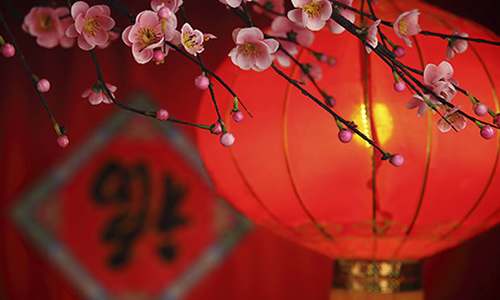
Ever wondered how the Chinese New Year started? According to history, it is unclear how the celebration began but many know that it started from the year-end religious ceremony during the Shang Dynasty (1766 BC - 1122 BC). Another claim was that it started as early as -2300 BC during Emperor Yap and Shun’s reign. The New Year Celebration was then officially celebrated during the first day of the first month during the Han Dynasty at 206 BC- this was also the time when people used crack bamboo, believing that its sounds will drive the bad spirits away( Crack bamboo is a kind of bamboo that makes cracking noises when burned). Fireworks were already used for New Year celebrations during the Wei Dynasty (220 - 265) and Jin Dynasty (265 – 420).. it is also where people had the Shou Sui as a tradition. A Shou Sui means “After the new year’s eve dinner” and then finally, during the Song Dynasty (960), fireworks with the use of gunpowder took place.
According to legend, Chinese New Year began when there was a fight against a beast named “Nian” (“Nian” means “Year”) which looks like an ox with a lion head that lives in the sea. Every night of the New Year’s Eve, Nian will surface and harm the people, animals and everything that lives on the land- even the properties of the land inhabitants! People were usually scared of Nian but there was one time where an old man questioned such fear and told them that Nian is only one and there are a lot of people- for sure Nian cannot eat all of them. People were still scared and did not believe the old man however, the old man did protect them for several nights until he revealed that he was a god and had duties elsewhere- he cannot protect them all the time. Upon leaving, he told them that Nian is fearful of the color red, noises and weird creatures. Since then, every New Year, people make loud noises with drums, fireworks, and music. They hung red signs on the door and told the children to wear masks and carry lanterns. Nian has never returned again.
Common Chinese Greetings:
Wan Shi Ru Yi: everything follows your will
Ji Xiang Ru Yi: harmony and everything follows your will
Sui Sui Ping An: harmony and safety year around
Gong Xi Fa Cai: congratulations and prosperity. (mostly used in southern China)
Trivia:
-It is important for the Chinese to clean every part of their house meticulously as old events are over and it is time to welcome the new ones.
-Food prepared are actually symbols. Here are some:
Chicken = happiness and marriage
Eggs = fertility
Egg Rolls = wealth
Fish served whole = prosperity
Chinese garlic chives = everlasting, a long life
Lychee nuts = close family ties
Noodles = A long life
Oranges = wealth
Peanuts = a long life
Pomelo = abundance, prosperity, having children
Seeds = lotus seeds, watermelon seeds, etc. - having a large number of children
Tangerines = luck
